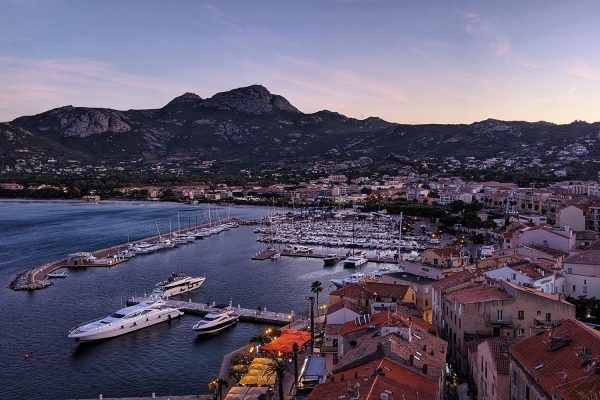
Corsica was rocked by violent protests this month after Yvan Colonna, a Corsican nationalist, was attacked in a French prison by a fellow inmate. Colonna died of his wounds on Monday.
He was serving a life sentence in Arles, a small city west of Marseilles, for the murder of Claude Érignac, Corsica’s top regional official in 1998. Colonna had petitioned several times to be transferred to a Corsican prison but was denied every time.
Despite widespread condemnation across Corsican society of Érignac’s murder, Colonna was still viewed by many as a nationalist hero. The fact that he died in a prison in mainland France added insult to injury. As did the fact that he was killed by a convicted jihadist of African descent. Relations between Corsica’s native and immigrant populations have been tense for years.
Political implications
Colonna’s death has political implications. The first round of France’s presidential election is in three weeks. Emmanuel Macron is still set to win another term, but he now faces an unexpected domestic challenge as Corsican nationalists ramp up their demands for self-government.
Macron is taking these calls seriously, sending his interior minister, Gérald Darmanin, to the island to calm the unrest. Darmanin promised the nationalist-controlled Corsican parliament that, if Macron is reelected, the French government will hold talks on Corsican autonomy provided the violence stops. Darmanin was quoted by a regional newspaper as saying, “We are ready to go as far as autonomy. There you go, the word has been said.”
Darmanin did not elaborate on what autonomy would entail, but the mere promise is a significant change for a nation that has long prided itself on its indivisibility.
Giving in to violence
Macron’s opponents view the promise of autonomy in return for peace as a bid to shore up the president’s support in the election.
Conservative candidate Valérie Pécresse claims Macron is “desperate” and giving in to violence. She could accept an autonomous Corsica, but within the “framework of the republic.” In other words, Corsica must remain French.
Far-right candidate Marine Le Pen is opposed to granting Corsica autonomy outright. She has accused Macron of “cynical clientelism”. A spokesperson for Le Pen added that Macron’s policy is to “sell off France.”
On the left, Socialist mayor of Paris Anne Hidalgo, who supports greater legislative powers for Corsica, nevertheless considers Macron’s offer to negotiate in response to the violence “a worrying situation” given its proximity to the election. Support for full Corsican autonomy has come from the Green party candidate, Yannick Jadot.
Public opinion
As for the French population, an opinion poll published in Corse Matin found that 53 percent support giving Corsica a measure of self-government while 35 percent support complete autonomy for the island.
Support for autonomy cuts across the political spectrum, but the timing and violent circumstances under which this once-taboo topic has been raised give the French pause.
In the 2017 election, Macron posted one of his worst results on Corsica, winning 51-52 percent in the second round against Le Pen, far below his national score of 66 percent. It would seem he has made a calculated move to stop the violence, which could have hurt his popularity in mainland France, by promising autonomy, which could improve his standing on Corsica.
